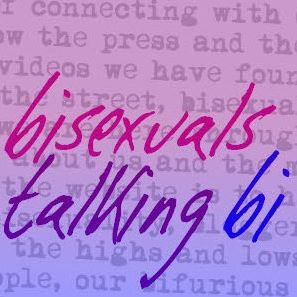Metrosexy

Everyone who’s ever put fingers to keyboard for money is scrabbling around these days trying to find new ways to make it work. Fortunately for those of us who appreciate our sexual politics through a combination of witty writing and thought-provoking ideas, Mark Simpson has found a way with his new ebook Metrosexy.
Even those people who have never heard of Mark Simpson himself will have heard the term “metrosexual” which he coined in 1994. (Metrosexual meaning something along the lines of “man relaxed in his sexual and gender identity, who takes great interest in his own appearance and that of other men”. Or something like that. Aargh!)
He blogs at marksimpson.com, and sometimes has features published in magazines or newspapers, but it has been FAR TOO LONG since he last had an actual book published.
The book
Metrosexy (subtitled a 21st century self-love story) is a collection of Mark’s writings mostly, but not all, published before. So whether it’s Sporno (sports/porn combo a la David Beckham) or a critique of what metrosexuality has become (“metrosexuality was anything but skin deep, whilst metrosexmania pretended that’s all it was”) there’s lots to ponder over.
E-books tend to be substantially cheaper than paper ones, certainly if they are e-book originals, and not just another format for a large publisher. So at £2.86 (for 70,000 words), Metrosexy is a downright bargain. You can download it here.
The ideas
Mark’s work is all about about gender and masculinity (in men) and how men are seen and see themselves in the media and popular culture. Metrosexuality, for instance, is an indication that traditional gender differences between men and women are fading away. It has sexual ambiguity written into its very core. Where once men looked and women were looked at, now men delight in being objects of desire. They aren’t particularly bothered whether it’s men or women doing the desiring because, fundamentally, a metrosexual’s love object is, it seems, himself.
My own particular interest in Mark, and why he is of interest to this blog, is his own take, and personal experience, on bisexuality. In brief (pun sort of intended), he knows that men don’t have to be gay or even bi to have sex with each other. A lot. And specifically, in a period when mainstream and much of gay society considers bisexual men, or indeed bisexuality in men, to be bogus in some sense, here’s someone who’s not part of the bi scene, or even bi, who disagrees.
I also like Mark’s anti-respectable queerness. Most people writing on L or G issues these days are very focused on equal rights and, in particular, equal rights to marriage. He’s not.
He also writes about complex ideas accessibly, for a non-academic audience. Most books on sexuality these days that are about actual ideas are written by and for people within universities. That’s great for them (and just the way the publishing cookie crumbles these days), but not so good for the rest of us.
Him indoors
Alongside Metrosexy, I’ve also been reading The Spiv and the Architect (Unruly life in postwar London) by Richard Hornsey - a more traditionally academic book in the cultural studies field.
TS+TA isn’t really about spivs and architects per se. Instead, it’s about the post WW2 to 1950s development of the notion of the respectable homosexual and how he did and mostly didn’t fit in with the development of domestic and civic urban life. The book charts the way that male homosexuality moved from that of pre-war London, where men more often felt able to have sex with each other without being unmasculinised, or Queer in the old-fashioned sense of the word.
In the 1950s, where conformity to the nuclear family was all around, and heterosexual marriage was the most natural thing in the world, a few high profile legal cases highlighted the plight of The Homosexual and divided men who had sex with men into Respectable (wanted domestic companionship) and Queer/disruptive (cottagers, bi men, young men). While law reform (which didn’t actually happen until 1967) meant that men could settle down together, those who still wanted to take their sexuality away from the domesticated environment felt the full force of Lily Law.
So thank God to be living in a London where – despite all our many problems - metrosexuality is the new conformity, heterosexual and queer men both wear flowery shirts, kiss each other even when they’re sober and discuss the best product to stick into their carefully tousled hair.
And also
As she so rightly points out in the commments below, I was first told about Metrosexy by Quiet Riot Girl/Elly who (at that time) was promoting this book and Mark's ideas. So thank you QRG for that. And readers might like to know that she also has an e-novella out herself Scribbling on Foucault's Walls. I've only read 10 pages of it so far, but it's an extraordinary book, very unusual and engaging. And free. Free!

